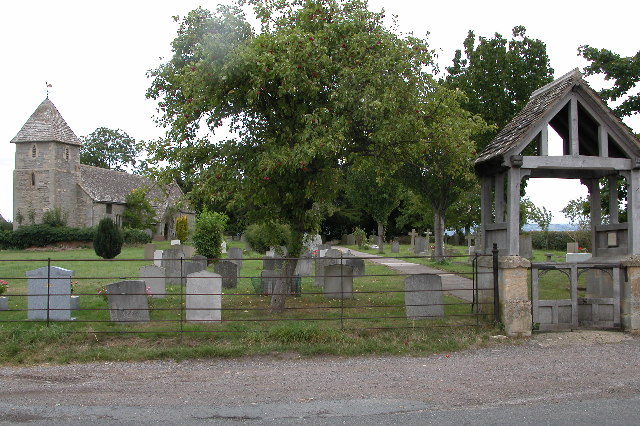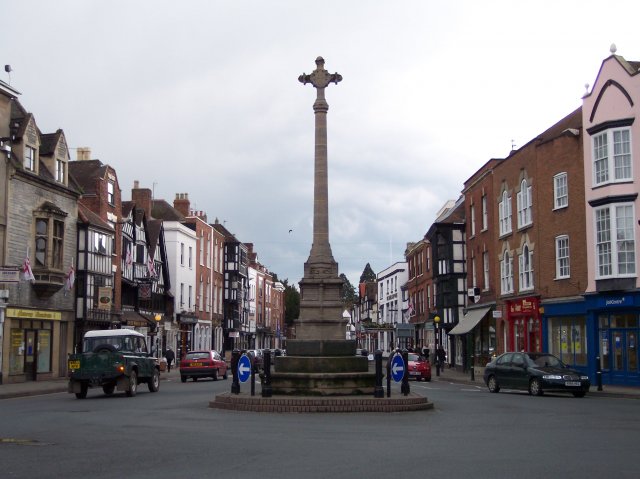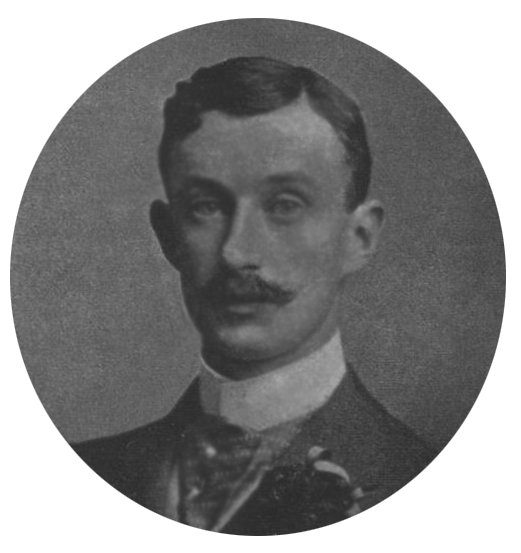|
Uckington, Gloucestershire
Uckington is a village west of Cheltenham in Gloucestershire. The population of the parish taken at the 2011 census was 605. Not having a church, Uckington was formerly a hamlet in the parish of Elmstone-Hardwicke but is now a civil parish in its own right. The two villages share a village hall. Uckington is in the borough of Tewkesbury, the Cheltenham post town, and on the Coombe Hill, Cheltenham, telephone exchange A telephone exchange, telephone switch, or central office is a telecommunications system used in the public switched telephone network (PSTN) or in large enterprises. It interconnects telephone subscriber lines or virtual circuits of digital syst .... Nearby villages include Elmstone-Hardwicke and Boddington. References Villages in Gloucestershire Borough of Tewkesbury {{Gloucestershire-geo-stub ... [...More Info...] [...Related Items...] OR: [Wikipedia] [Google] [Baidu] |
Cheltenham
Cheltenham (), also known as Cheltenham Spa, is a spa town and borough on the edge of the Cotswolds in the county of Gloucestershire, England. Cheltenham became known as a health and holiday spa town resort, following the discovery of mineral springs in 1716, and claims to be the most complete Regency town in Britain. The town hosts several festivals of culture, often featuring nationally and internationally famous contributors and attendees; they include the Cheltenham Literature Festival, the Cheltenham Jazz Festival, the Cheltenham Science Festival, the Cheltenham Music Festival, the Cheltenham Cricket Festival and the Cheltenham Food & Drink Festival. In steeplechase horse racing, the Gold Cup is the main event of the Cheltenham Festival, held every March. History Cheltenham stands on the small River Chelt, which rises nearby at Dowdeswell and runs through the town on its way to the Severn. It was first recorded in 803, as ''Celtan hom''; the meaning has not been resol ... [...More Info...] [...Related Items...] OR: [Wikipedia] [Google] [Baidu] |
Village Hall
A village hall is a public building in a village used for various things such as: United Kingdom In the United Kingdom, a village hall is usually a building which contains at least one large room (plus kitchen and toilets), is owned by a local government council or independent trustees, and is run for the benefit of the local community. It is estimated that there are over 10,000 such village halls. Such a hall is typically used for a variety of public and private functions, such as: * Parish council meetings *Polling station for local and national elections *Sports club functions * Local drama productions *Dances *Jumble sales *Private parties such as birthdays or wedding receptions Village halls are generally run by committees, and if not already part of a local government body such as a parish council, then such committees are eligible for charitable status. They may have other names such as a Village Institute or Memorial Hall. In some localities a church hall or community ... [...More Info...] [...Related Items...] OR: [Wikipedia] [Google] [Baidu] |
Boddington, Gloucestershire
Boddington is a village and parish near Cheltenham. The population taken at the United Kingdom Census 2011, 2011 census was 266. It is home to RAF Boddington. References External links Villages in Gloucestershire Borough of Tewkesbury {{Gloucestershire-geo-stub ... [...More Info...] [...Related Items...] OR: [Wikipedia] [Google] [Baidu] |
Telephone Exchange
A telephone exchange, telephone switch, or central office is a telecommunications system used in the public switched telephone network (PSTN) or in large enterprises. It interconnects telephone subscriber lines or virtual circuits of digital systems to establish telephone calls between subscribers. In historical perspective, telecommunication terms have been used with different semantics over time. The term ''telephone exchange'' is often used synonymously with ''central office'', a Bell System term. Often, a ''central office'' is defined as a building used to house the inside plant equipment of potentially several telephone exchanges, each serving a certain geographical area. Such an area has also been referred to as the exchange or exchange area. In North America, a central office location may also be identified as a ''wire center'', designating a facility to which a telephone is connected and obtains dial tone. For business and billing purposes, telecommunication carriers defi ... [...More Info...] [...Related Items...] OR: [Wikipedia] [Google] [Baidu] |
Coombe Hill, Tewkesbury
Coombe Hill is a hamlet in the civil parish of Leigh in Gloucestershire, England. It lies on the A38 road between Gloucester and Tewkesbury, at the junction with the A4019 road to Cheltenham. Coombe Hill is the terminus of the disused Coombe Hill Canal, which joined the hamlet to the River Severn , name_etymology = , image = SevernFromCastleCB.JPG , image_size = 288 , image_caption = The river seen from Shrewsbury Castle , map = RiverSevernMap.jpg , map_size = 288 , map_c ..., west, between 1796 and 1876. It is now a nature reserve. References Hamlets in Gloucestershire Borough of Tewkesbury {{Gloucestershire-geo-stub ... [...More Info...] [...Related Items...] OR: [Wikipedia] [Google] [Baidu] |
Post Town
A post town is a required part of all postal addresses in the United Kingdom and Ireland, and a basic unit of the postal delivery system.Royal Mail, ''Address Management Guide'', (2004) Including the correct post town in the address increases the chance of a letter or parcel being delivered on time. Post towns in general originated as the location of delivery offices. , their main function is to distinguish between localities or street names in addresses not including a postcode. Organisation There are approximately 1,500 post towns which are organised by Royal Mail subject to its policy only to impose changes where it has a proven, economic and practical benefit to the organisation, covering its own cost. Each post town usually corresponds to one or more postal districts (the 'outward' part of the postcode, before the space) therefore each post town can cover an area comprising many towns, urban districts and villages. Post towns rarely correspond exactly to administrative b ... [...More Info...] [...Related Items...] OR: [Wikipedia] [Google] [Baidu] |
Tewkesbury
Tewkesbury ( ) is a medieval market town and civil parish in the north of Gloucestershire, England. The town has significant history in the Wars of the Roses and grew since the building of Tewkesbury Abbey. It stands at the confluence of the River Severn and the River Avon, and thus became an important trading point, which continued as railways and later M5 and M50 motorway connections were established. The town gives its name to the Borough of Tewkesbury, due to the earlier governance by the Abbey, yet the town is the second largest settlement in the Borough. The town lies on border with Worcestershire, identified largely by the Carrant Brook (a tributary of the River Avon). The name Tewkesbury is thought to come from Theoc, the name of a Saxon who founded a hermitage there in the 7th century, and in the Old English language was called '. Toulmin Smith L., ed. 1909, ''The Itinerary of John Leland'', London, IV, 150 An erroneous derivation from Theotokos (the Greek title of Ma ... [...More Info...] [...Related Items...] OR: [Wikipedia] [Google] [Baidu] |
Borough
A borough is an administrative division in various English-speaking countries. In principle, the term ''borough'' designates a self-governing walled town, although in practice, official use of the term varies widely. History In the Middle Ages, boroughs were settlements in England that were granted some self-government; burghs were the Scottish equivalent. In medieval England, boroughs were also entitled to elect members of parliament. The use of the word ''borough'' probably derives from the burghal system of Alfred the Great. Alfred set up a system of defensive strong points (Burhs); in order to maintain these particular settlements, he granted them a degree of autonomy. After the Norman Conquest, when certain towns were granted self-governance, the concept of the burh/borough seems to have been reused to mean a self-governing settlement. The concept of the borough has been used repeatedly (and often differently) throughout the world. Often, a borough is a single town with ... [...More Info...] [...Related Items...] OR: [Wikipedia] [Google] [Baidu] |
Civil Parish
In England, a civil parish is a type of administrative parish used for local government. It is a territorial designation which is the lowest tier of local government below districts and counties, or their combined form, the unitary authority. Civil parishes can trace their origin to the ancient system of ecclesiastical parishes, which historically played a role in both secular and religious administration. Civil and religious parishes were formally differentiated in the 19th century and are now entirely separate. Civil parishes in their modern form came into being through the Local Government Act 1894, which established elected parish councils to take on the secular functions of the parish vestry. A civil parish can range in size from a sparsely populated rural area with fewer than a hundred inhabitants, to a large town with a population in the tens of thousands. This scope is similar to that of municipalities in Continental Europe, such as the communes of France. However, ... [...More Info...] [...Related Items...] OR: [Wikipedia] [Google] [Baidu] |
Tewkesbury (UK Parliament Constituency)
Tewkesbury is a constituency represented in the House of Commons of the UK Parliament since its 1997 recreation by Laurence Robertson, a Conservative. History 1610 to 1918 Tewkesbury existed in this period, first in the parliamentary borough form. It returned two MPs until this was reduced to one in 1868, then saw itself become instead a larger county division under the Redistribution of Seats Act 1885, and it was abolished in 1918. ;Prominent politicians * William Dowdeswell was Chancellor of the Exchequer for two years under Rockingham, and his short tenure of this position appears to have been a successful one, he being in Lecky's words a good financier, but nothing more. To general astonishment, he refused to abandon his friends and to take an office under The 1st Earl of Chatham ("Pitt the Elder"), who succeeded Rockingham in August 1766. Dowdeswell then led the Rockingham party in the House of Commons, taking an active part in debate until his death. In 1774 he warne ... [...More Info...] [...Related Items...] OR: [Wikipedia] [Google] [Baidu] |
Elmstone-Hardwicke
Elmstone Hardwicke is a village and sizeable parish north-west of Cheltenham in Gloucestershire, England. St Mary Magdelene Church may be considered the hub of the village; its location is . The church has a 9th-century carved stone head which is ornamented like the font at Deerhurst. Elmstone Hardwicke is in the borough of Tewkesbury, the Cheltenham post town, and on the Coombe Hill, Cheltenham, telephone exchange. Nearby villages include Uckington, Stoke Orchard, and Tredington. Elmstone Hardwicke shares a village hall with Uckington. History ''The National Gazetteer'' (1868): Elmstone-Hardwicke has an interesting History with regard to the use of its land. Prior to the mid 18th century, most farmers in England rotated their crops across three or four strips of land- see Crop rotation, and ‘rights of common’- see common land were claimed for grazing the unfenced land. The Inclosures Acts of the 19th century proposed the inclosure of Elmstone-Hardwicke in 1899. Howe ... [...More Info...] [...Related Items...] OR: [Wikipedia] [Google] [Baidu] |
Parish
A parish is a territorial entity in many Christian denominations, constituting a division within a diocese. A parish is under the pastoral care and clerical jurisdiction of a priest, often termed a parish priest, who might be assisted by one or more curates, and who operates from a parish church. Historically, a parish often covered the same geographical area as a manor. Its association with the parish church remains paramount. By extension the term ''parish'' refers not only to the territorial entity but to the people of its community or congregation as well as to church property within it. In England this church property was technically in ownership of the parish priest ''ex-officio'', vested in him on his institution to that parish. Etymology and use First attested in English in the late, 13th century, the word ''parish'' comes from the Old French ''paroisse'', in turn from la, paroecia, the latinisation of the grc, παροικία, paroikia, "sojourning in a foreign ... [...More Info...] [...Related Items...] OR: [Wikipedia] [Google] [Baidu] |



.jpg)





